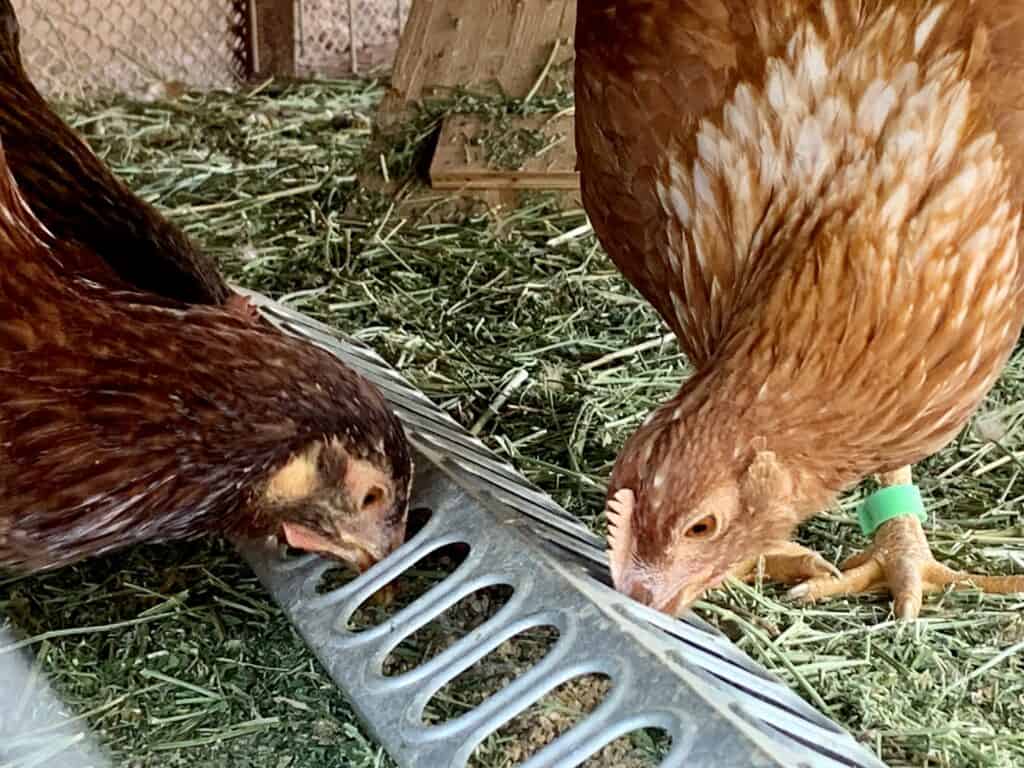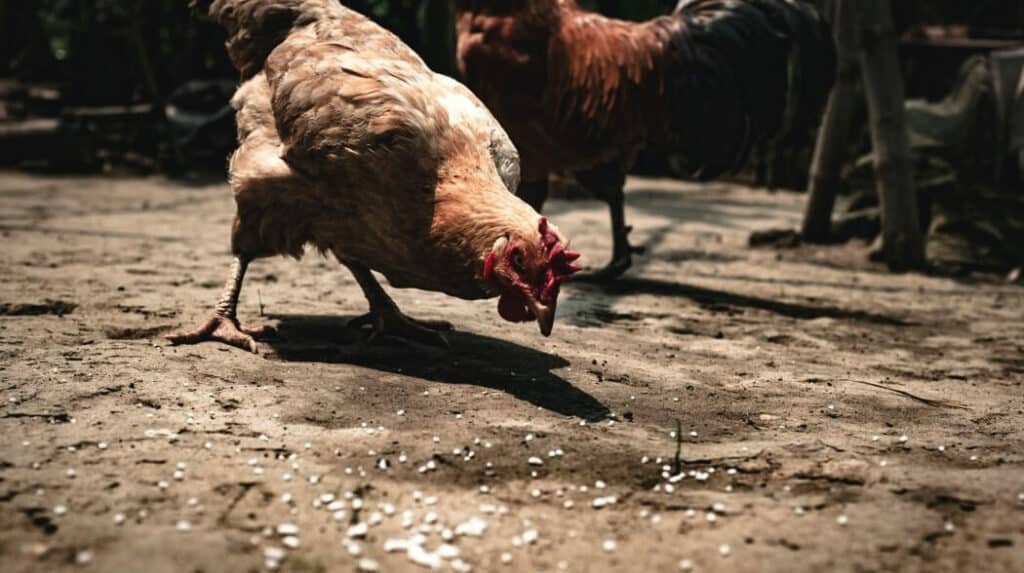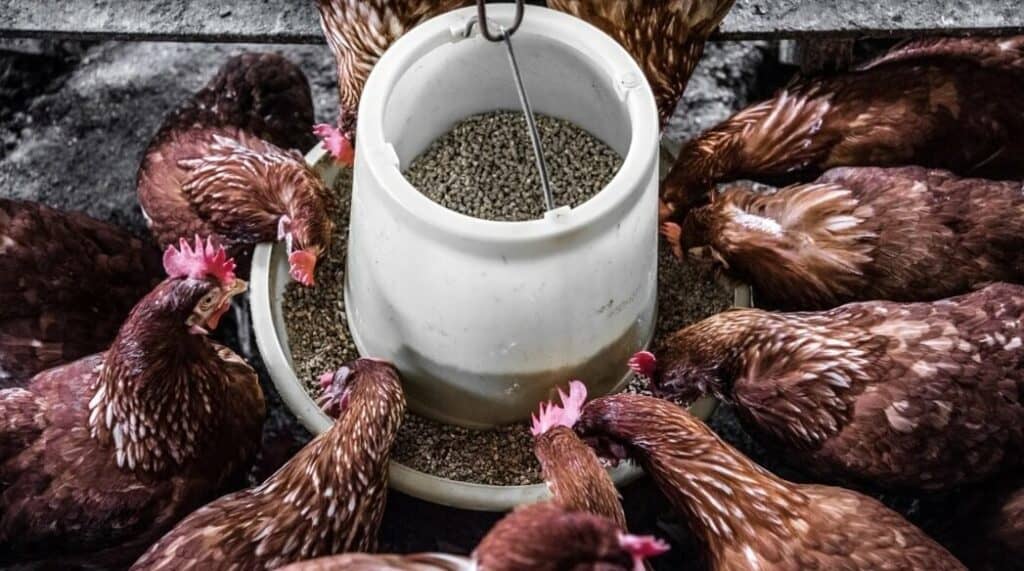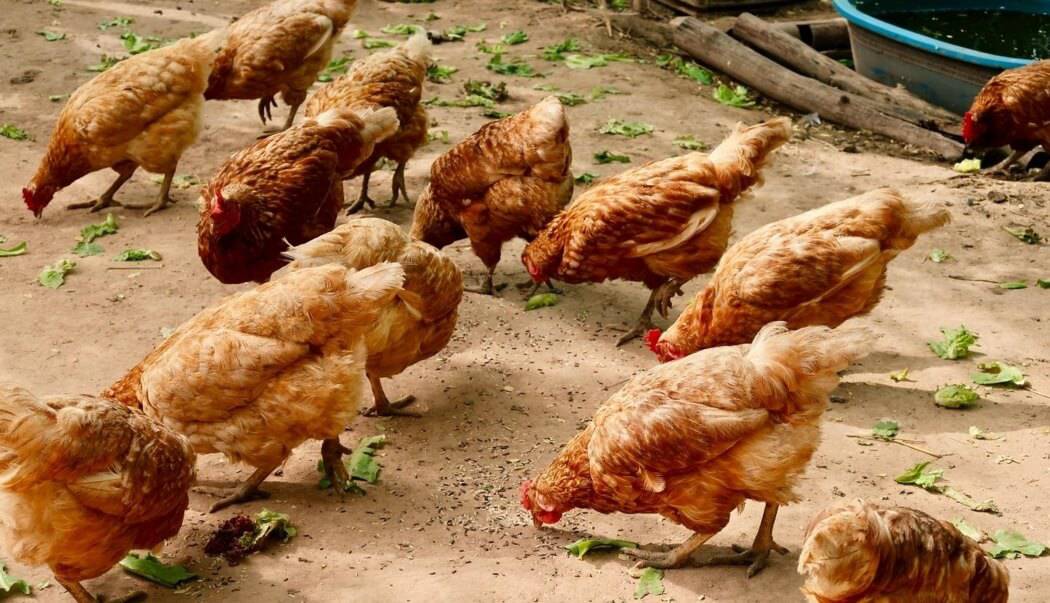As a responsible backyard chicken caretaker, you do not want your flock to get hungry. You must know how long can chickens go without food, especially if you are leaving for the weekend.
Lack of proper nutrition can cause lower egg production, so ensuring your chickens are fed and hydrated will guarantee they stay healthy and produce numerous eggs.
There are occasions when your chicken might not have access to food and water. The care and feeding of chickens is a daily job, but you might be wondering whether you can leave your flock unattended if you’re planning to leave for a few days. How long can chickens go without food?
How Long Can Chickens Go Without Food
The truth is that chickens are incredibly rugged animals and can live for some time without any attention, although this is based on their age and living conditions and whether they roam about freely or live in a coop. A coop that allows the chicken easy outdoor access will help them come across insects to eat when they’re free to forage and hunt. Chicken waterers will provide them with hydration.
Even though chickens are independent animals and self-sufficient, they require regular food intake to survive and flourish. In general, chickens will live no longer than four or five days without the usual chicken diet. So let’s look at how an absence of regular feed can impact your chickens and ways to avoid this.

How Much Food Do Chickens Require Each Day?
There are many instances of free-range chickens foraging and scratching all day, primarily because of their high metabolism. Chickens require a lot of energy as they’re constantly digesting food and putting in the calories for egg-laying. They can consume a significant amount of food given their size.
The number of meals chickens consume daily depends on several factors, such as their breed, age, or activity, and whether they are laying or foraging. However, an adult chicken generally needs approximately 1/4 of a pound of food each day.
How Long Can Chickens Go Without Eating
If left for long enough without food, usually three or four days, the chickens will begin eating their eggs for nourishment. If they are part of a group, they’ll start to pounce on one another shortly after. Chickens can turn to cannibalism if necessary to survive!
If the chickens are free-range, they will likely survive as long as they have plenty of insects and plants to eat. On the other hand, chickens left in a coop with no food or water will last for less than one week before starving to death.
Foraging is crucial for their physical and mental health, but they also require a balanced diet to flourish, especially during winter when not much food is available.

How Can Chickens Live without Food?
Before chickens were domesticated, they lived in the wild, pecking for food and water sources. So, if you allow them to roam and let your backyard flock be on their own when you’re away, they’ll likely do just fine, but only possible if they can access water and areas to protect themselves against predators.
It’s pretty difficult for chickens to starve because they can always find something to eat, such as frogs, black flies, earthworms, and mice. We feed chickens to ensure they get proper nutrition and lay as many eggs as possible. If they lack certain minerals, such as calcium, they could lay eggs with soft shells.
How to Ensure Chickens Have Food Everyday
When considering how long can chickens go without food, you will find it is helpful to have a chicken feeder and a water dispenser for them right from the beginning. Even if you do not have intentions of going away, these items will be helpful every day and will make your job easier.
Feeders and water dispensers are practical when you own backyard chickens because you can fill the chicken feeder with grains each month or every week (depending on the dimensions) and not fret about feeding your chickens each day. Water dispensers are similar; however, you need to fill them more frequently.
Keeping the food dispensers elevated over the floor (a minimum of about six inches) is vital to stop them from overflowing with feces and bedding as chickens scratch at them. Clean the chicken waterers at a minimum every week. As bacteria increases, it could result in infections and illnesses in your chickens. Place water dispensers in the shade to ensure they stay cool. The best chicken waterers will dispense water without getting contaminated by chicken feed, pests, etc.
If you’re looking to invest more in your backyard chicken coop, purchase smaller industrial chicken watering equipment to connect to your main water supply. This way, you don’t have to be concerned about replenishing their water. You only need to maintain the mouthpieces in good condition.

How to Feed Chickens When You are on Vacation
You can happily let your chickens be on their own for a weekend. First, however, you need to ensure that they are fed and that the coop and the run area are predator-proof.
Leaving chickens for a weekend
If you’d like to go away for an entire week, you can leave your chickens on their own. However, you’ll need food and water dispensers that are large enough so that your chickens aren’t thirsty or hungry. When you think about leaving your chickens behind, another aspect is the size of their run and how much pasture they can access.
Leaving chickens for more than a weekend
For holidays lasting more than a week, hire a babysitter, neighbor, or teenager or invest in technological equipment to set up your backyard chickens for an extended time. Request a friend or neighbor to do the necessary cleaning and refill the chicken’s water and food dispensers or let them roam around for the day in exchange for delicious fresh eggs.
Another option is investing in an automatic watering and feeding system and door programmed to open in the early morning and then close at sunset.
Letting your chickens go for more than a month is not ideal since chicken homes can turn disgusting and unsanitary. In addition, the feces and bedding can rot and cause a build-up of ammonia and bio-gasses that can put your flock in danger of getting sick.
If you’re scheduling an extended vacation, leave plenty of food in your dispensers. Also, make sure they are constantly supplied with plenty of fresh water and let the chickens run freely. Of course, there is always the risk of predators gaining access to the chickens, but they should be fine if they have enough tree roosts and places to hide.
How Long Can Chickens Go without Eating
If you are going on vacation and trying to determine how long can chickens go without food, also consider how long can chickens go without water. Fresh, clean water and nutritious food supplemented by free range foraging can keep the chickens healthy and will keep their egg production up.
Steady water and food supply are crucial to keeping the chickens healthy. Chickens need water to absorb the nutrients from their diet. Adult chickens cannot last for more than two days without water, while young chicks can only last six hours.
The one exception is newly born baby chicks, who can remain alive for as long as three days without any water or food due to the water and nutrients they received from the albumen of eggs. What to feed baby chickens after hatching
In the evening, chickens do not drink or eat; therefore, you don’t need to put food or water in their coop. It is possible to leave your chickens for at a few days for a trip as long as you provide them with sufficient water and food.
Learn more about supplying healthy food for chickens with the best diet for chickens as well as the best chicken feed. If you are wondering about mealworms for chickens as well as other treats for chickens, learn:
Whether or not you are new to raising chickens, read more:

